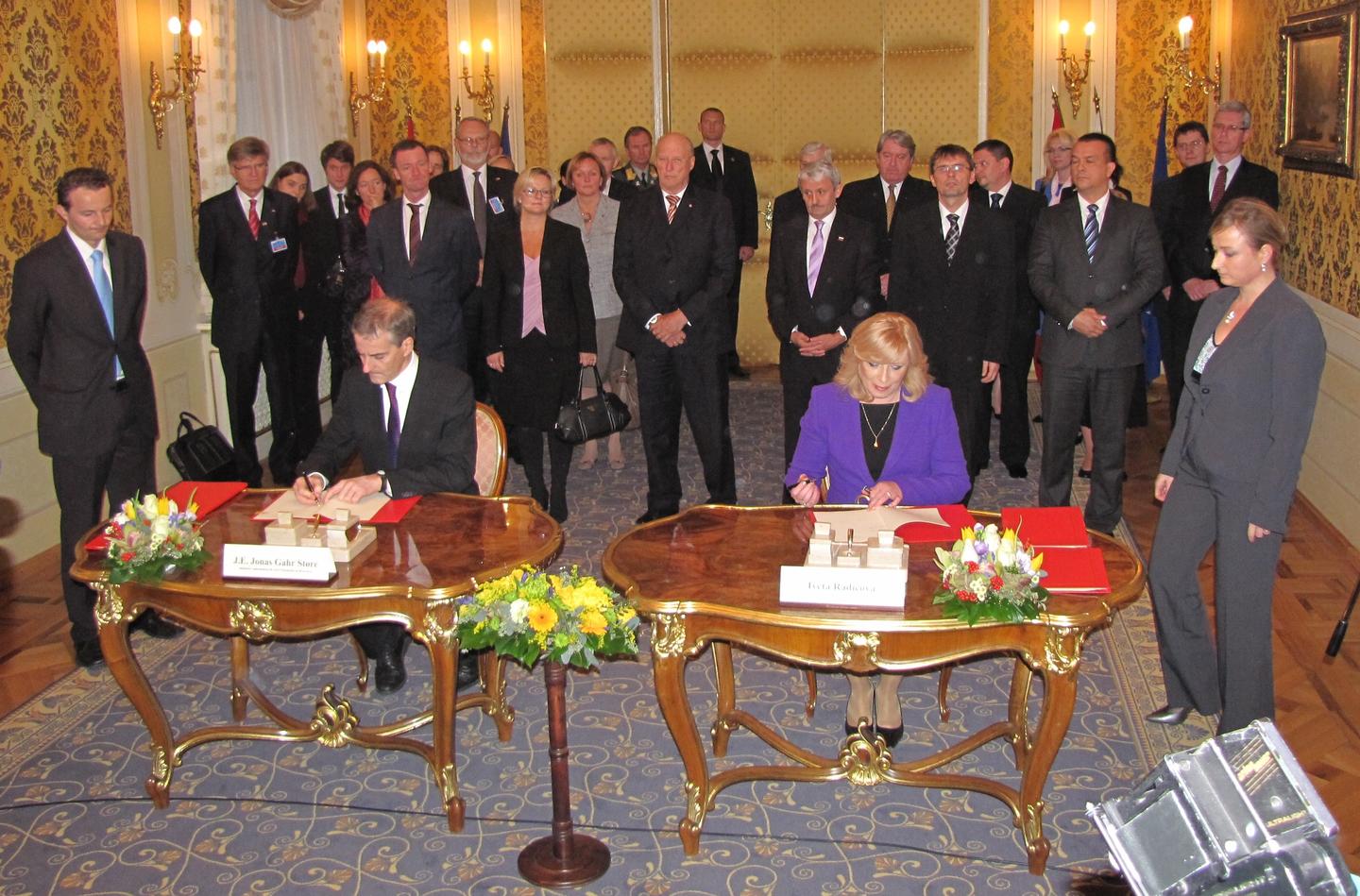The process of negotiating Memoranda of Understanding (MoUs) with all the 15 beneficiary states of the EEA and Norway Grants was initiated by the donor states in autumn last year. Discussions are well advanced with several countries, and the ambition is to conclude all agreements by the end of 2011.
Agreements on country implementation
The MoU is a framework agreement between the donor states and the individual beneficiary state on how the funding should be implemented. Last year, Iceland, Liechtenstein and Norway presented the beneficiary states with a choice of 32 programme areas. During the MoU process, the donor states and beneficiary states will identify and agree on the relevant programmes that will best fit local needs and deliver results towards the grants’ objectives of reduced disparities and strengthened cooperation in the European Economic Area.
In the MoU, the institutions in the beneficiary state that will ensure proper management of the funding are established; and decisions are made regarding how much of the funding will be used to support the different programme areas. In order to strengthen contact and cooperation between the donor states and the beneficiary state, ambitions are also set in the MoU concerning programme and project cooperation between entities in the respective countries.
Strengthened bilateral cooperation
Within the new round of the EEA and Norway Grants, strengthening bilateral relations between the beneficiary states and donor countries is an important overarching objective. In addition to project-level cooperation, public entities in the beneficiary states will therefore cooperate with counterparts in the donor states on the implementation of several of the national programmes that will provide grants to projects. In order to ensure the participation of public entities in the donor states, the MoU negotiations were preceded by wide-ranging consultations among public institutions in Norway to establish their interest and availability to act as partners in the implementation of some of the programmes.
Programmes established in 2011-2012
Once the individual MoUs have been signed; the beneficiary states will start developing the specific programmes. This work includes developing a strategy towards expected outcomes and suggested activities in the relevant programme areas. Each country will identify programme operators and require these to develop a programme proposal that will be subject to donor state approval.
A few programmes are expected to have been established in late 2011. Grants will be awarded to projects following calls for proposals that will be organised by the respective programme operators in the beneficiary states, most likely starting in 2012. A significant number of programmes are expected to begin operations in 2012.
Photo: Norway's Foreign Minister, Jonas Gahr Støre, and Slovakia's Prime Minister, Iveta Radièová, signing the Memorandums of Understanding (MoUs) on 26 October 2010. The picture is taken by Boris Strizenec, National Focal Point, Slovak Republic.
